Story of the Week... Opinion of the Week... SkS Highlights... Toon of the Week... Quote of the Week... Coming Soon on SkS... & Poster of the Week...& SkS Week in Review... Poster of the Week...
Story of the Week...
A major climate report will slam the door on wishful thinking
The IPCC is likely to say that even the most optimistic scenario for climate change isn’t great at all.
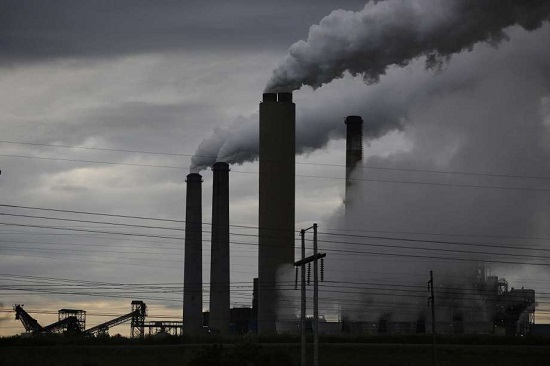 &
&
The leading international body of climate change researchers is preparing to release a& major report& Sunday night on the impacts of global warming and what it would take to cap warming at 1.5 degrees Celsius,& or 2.7 degrees Fahrenheit, above pre-industrial levels, a goal that looks increasingly unlikely.
The report is from the& Intergovernmental Panel on Climate Change, an international consortium of hundreds of climate researchers convened by the United Nations. Authors are meeting this week in Incheon, South Korea, to finalize their findings, but& Climate Home News& obtained an early leaked draft.
Why examine the prospects for limiting global warming to 1.5°C? Because under the& Paris agreement, countries agreed that the goal should be to limit warming to below 2°C by 2100, with a nice-to-have target of capping warming at 1.5°C.
According to the drafts, the report finds that it would take a massive global effort, far more aggressive than any we’ve seen to date, to keep warming in line with 1.5°C — in part because we are already en route to 3°C of warming. And even if we hit the 1.5°C goal, the planet will still face massive, devastating changes. So it’s pretty grim.
But this is also a thunderous call to action, laying out what tools we have at our disposal (we have plenty) to mitigate global warming and to accelerate the turn toward cleaner energy. Let’s walk through the basics.&
A major report will slam the door on wishful thinking& by Umair Irfan, Energy & Environment, Vox, Oct 5, 2018
Opinion of the Week...
Climate change apathy, not denial, is the biggest threat to our planet
The easy way to cut emissions &- closing coal power stations &- is exhausted. Now the public has to be convinced to make sacrifices&
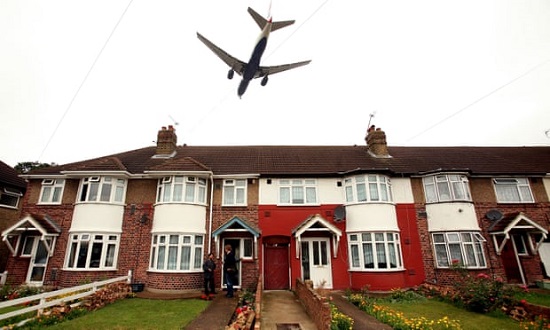 &
&
Cutting emissions will depend on people changing how they live: flying less, for example.’ Photograph: Graeme Robertson for the Guardian
Three years after world leaders signed the& Paris climate agreement, we’re about to better understand what that deal means for how we live our lives. On Monday, a major report from the UN’s climate science panel will set out what it will take to limit global warming to 1.5C, the key Paris target.
There are reasons to think the world is, finally, getting to grips with climate change. Carbon emissions are still rising but more slowly than before, and in many countries they’re falling. The UK has& slashed its emissions& to 19th-century levels, and we’re not alone &- plenty of other countries, including the US, are making progress as well. Crucially, that’s happened without many people noticing, suggesting the world might be able to deal with the problem without having to persuade the public to change their polluting lifestyles.
But this is wishful thinking. The UK’s recent emissions cuts have mostly come from& shutting coal power stations, which had few friends, and there aren’t many left to close. And that only happened after years of campaigning, but it was still much easier than what is to come. Cutting emissions further to stop dangerous warming will depend on people changing how they live: flying less and eating& less meat and dairy, for example. There’s no way this can be done as quietly as what’s been achieved so far.&
Climate change& apathy, not denial, is the biggest threat to our planet, Opinion by Leo Barasi, Comment is Free, Guardian, Oct 5, 2018
Toon of the Week...
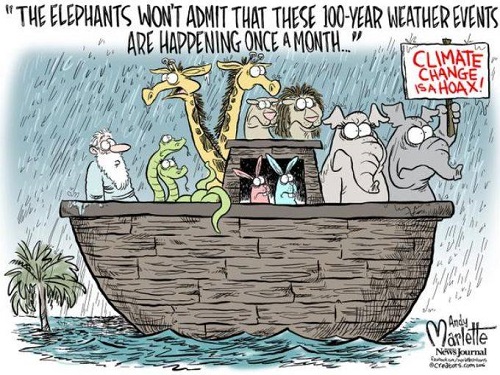 &
&
Quote of the Week...
Not Your Expected Climate Impact: Arizona Flooded by a Tropical Storm
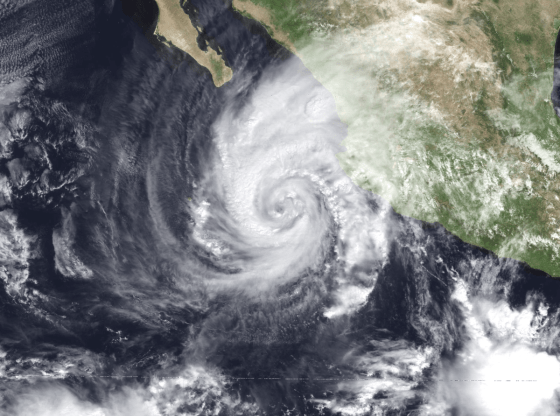
Satellite images show then-Hurricane Rosa churning toward Mexico's Baja California and scientists say climate change is a big reason storms are taking unusual paths. Photo: Wikimedia
As Tropical Storm Rosa rolls through Arizona, dousing desert towns with heavy rains and filling reservoirs nearly depleted by a lengthy drought, the storm’s arrival is also a message from the sky about the impact of climate change: it can produce weird weather that in ancient times might have been attributed to angry gods.
Now, however, the unusual sight of flooded streets in Arizona can be explained by science.
“There’s a climate change component to it and we can say that with confidence,” said Kevin Trenberth, senior scientist at the National Center for Atmospheric Research.
Global warming has raised ocean temperatures and warmed the air above it, supercharging storms with moisture that they unleash in bigger rainfalls. Researchers now have enough data to connect the dots between increasing greenhouse gas emissions, greater moisture in the air and outsized rainstorms, Trenberth said.
The air above the ocean can hold 4 percent more moisture for every degree Fahrenheit and scientists have found about 5-20 percent more moisture gathered in the air since the 1970s, Trenberth said. The result played out last month when Hurricane Florence doused parts of the Carolinas with 30 inches of rain
“The main effects are the storms are more intense and last longer, and the rain is heavier. In Hurricane Florence, we have all three effects in play,” he said.
Not Your Expected Climate Impact: Arizona Flooded by a Tropical Storm& by Ucilia Wang, Climate Liability News, Oct 2, 2018
Coming Soon on SkS...
- The Trump administration has entered Stage 5 climate denial& (Dana)
- Next self-paced run of Denial101x starts on October 16 (Baerbel)
- SkS Analogy 14 - Inertia and Inevitability (Evan)
- Guest Post (John Abraham)
- New research this week (Ari)
- 2018 SkS Weekly Climate Change & Global Warming News Roundup #41 (John Hartz)
- 2018 SkS Weekly Climate Change & Global Warming News Roundup #41 (John Hartz)
Poster of the Week...
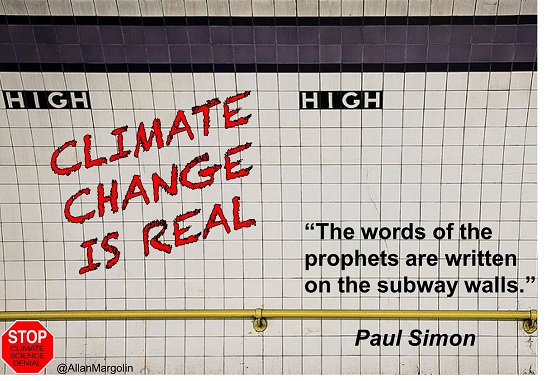 &
&
SkS Week in Review...&
- 2018 SkS Weekly Climate Change & Global Warming News Roundup #40& by John Hartz
- New research, September 24-30, 2018& by& Ari Jokimäki
- How Arctic lakes accelerate permafrost carbon losses& by Ingmar Nitze, Guido Grosse, Thomas Schneider von Deimling & Katey Walter Anthony (Carbon Brief)
- New study finds incredibly high carbon pollution costs &- especially for the US and India& by Dana Nuccitelli (Climate Consensus - the 97%, Environment, Guardian)
- 2018 SkS Weekly Climate Change & Global Warming Digest #39& by John Hartz
Comments